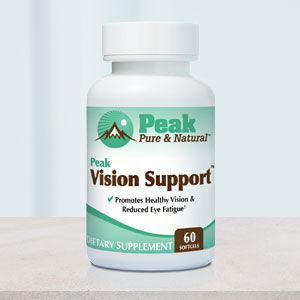Get Easy Health Digest™ in your inbox and don’t miss a thing when you subscribe today. Plus, get the free bonus report, Mother Nature’s Tips, Tricks and Remedies for Cholesterol, Blood Pressure & Blood Sugar as my way of saying welcome to the community!
5 huge improvements you get from a digital detox

You’ve heard us talk here about the health benefits of a periodic detox to cleanse and rejuvenate the health of the body.
But, have you ever considered a “digital detox”?
What would happen if you set aside your cell phone, your laptop, your tablet, and any other devices you log into for a day or two? How about five days? A week?
How would your body (and mind) benefit?
Are you getting anxious just thinking about it?
I’m actually preparing to go on a retreat where I will be in a “forced detox.” The cell phone and internet service in the area where I’ll be spending five days is spotty at best, so I’m planning on just unplugging altogether.
After all, the idea of a retreat IS to unplug, unwind, reflect and relax.
I’m a little nervous about the whole thing. And the research backs me up on that.
But, the research on letting go of our devices for a while also tells me that I will feel better once I do it.
Just not right away.
What happens to you when you “disconnect”?
It’s really no exaggeration to say that we’ve become addicted to our electronic devices. I grew up way before the age of cell phones, yet now I feel uneasy if my phone isn’t within arm’s reach.
A recent study published in the Journal of Travel Research has given me some insight into what I might expect emotionally once I start my digital detox and go “off the grid.”
Twenty-four participants traveled to 17 countries, mostly to remote locations. For at least 24 hours, they disconnected from their smartphones, tablets, laptops, social media, WiFi, the Internet, and navigation apps.
The researchers themselves also participated in this experiment. Journal entries and interviews provided insight into the emotions experienced before, during and after the “disconnect.”
Three emotional stages of a digital detox
In general, there were three stages to the experience of a digital detox.
Withdrawal. Just like going through withdrawal from a drug or cigarettes, putting down the cell phone and leaving social media behind creates feelings of agitation and anxiety for many people.
In fact, two of the participants in the study withdrew after less than 24 hours, finding the emotional experience of withdrawal to be unbearable.
Acceptance and a sense of freedom. In this stage, people became more focused, more attentive to their surroundings, and generally felt more relaxed, both physically and mentally.
Re-connect overwhelm. When participants turned on their devices again, many felt overwhelmed by the number of emails and digital messages that were waiting for them. Some felt guilty for not having been available.
A fascinating experiment
Kate Unsworth is a millennial, so it may seem unusual that she’s advocating for the “get unplugged” movement. But she became increasingly troubled by research findings that link cell phone and social media use to narcissism, depression, and insomnia, especially in children.
“I don’t want my children growing up like this,” she says.
In 2013, Unsworth founded Kovert, a research organization where neuroscientists, psychologists, and philosophers design experiments to find out just how technology is affecting people’s bodies and behaviors.
Their most recent experiment: taking 35 CEOs and entrepreneurs on a trip to Morocco to study their behavior with and without technology.
Along with the 35 participants were five “undercover” neuroscientists who observed the group. They studied participants’ facial expressions and physical movements, as well as how they related to one another.
Here are some of the changes observed after the group lived together in the Moroccan desert for four days, without cell phones or other technology of any kind.
- Better posture. After three days, people’s posture changed noticeably. They began looking forward more, into people’s eyes, rather than down toward a screen. The front of their bodies opened up, their shoulders pushed back, and they stood straighter. “A wonderful side effect of this is that people’s general energy opens up,” Unsworth says. “They appear much more approachable when they enter a room.”
- Greater interpersonal energy. Because there was more eye contact, people seemed to relax more with each other and engage more easily in conversation.
- Deeper, more lengthy conversations. Without Google to turn to for answers, people ended up exploring questions, telling stories, and engaging in guessing games that formed bonds among them.
- Improved memory. Participants tended to remember minor details about the relative strangers they were traveling with, such as the name of a distant relative mentioned once in passing. The neuroscientists believe this was because people were more present. Their brains could process and store the new information without distractions. A side benefit of this is that these “minor” pieces of information were key to bonding with new friends.
- More efficient sleep. Group members reported that, although they didn’t seem to need as much sleep, they felt more rested and rejuvenated than usual in the morning.
You won’t be surprised that the neuroscientists attribute this to the absence of blue light on cell phones that suppresses melatonin and prevents deep sleep.
Sources:
- Emotional journey of a digital detox while traveling — Neuroscience News
- The Emotional Roller-Coaster of a Digital Detox Vacation — Psychology Today
- What Really Happens To Your Brain And Body During A Digital Detox — Fast Company
- Digital addiction: how technology keeps us hooked — The Conversation













